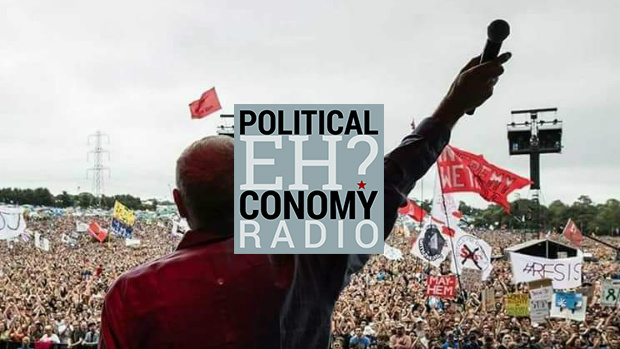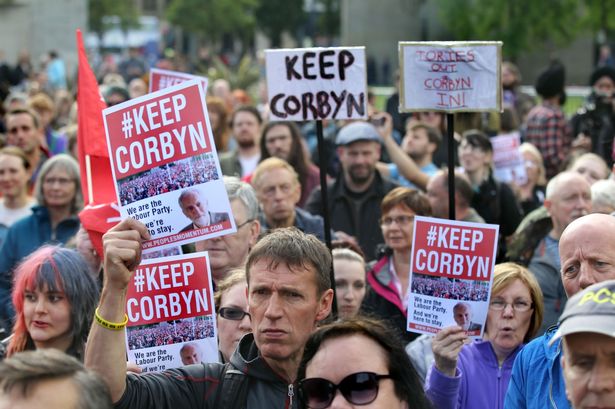Podcast: Play in new window | Download
Subscribe: Apple Podcasts | Android | Email | Google Podcasts | RSS | More
Looking to the UK, it definitely feels like a series of those weeks where decades happen. Jeremy Corbyn’s Labour narrowly lost but really won the election, its vote share up by the most since 1945. Corbyn himself looks more like the Prime-Minister-in-waiting than leader-of-the-opposition; “Jeremy Corbyn is Prime Minister” is now a popular dig at mainstream pundits on Twitter. This week’s two great guests explain it all: how and why Corbyn won, why his economic program was so important and where Labour goes from here.
First I speak with Beth Foster-Ogg, a prominent activist with Momentum, the group created to support Corbyn’s first leadership bid and now a major force both within and outside the Labour Party. Beth is currently the membership coordinator and spoke with me about Momentum’s role in the election campaign, and where it is headed next. My second guest is Nick Srnicek. Nick is the author of Platform Capitalism and Inventing the Future, a stellar and influential book co-written with Alex Williams, one he spoke about on this podcast last year. He is a Lecturer in the International Politics Department at the City University London and one of number of intellectuals who have supported the rise of Corbynism.
As always, remember to subscribe above to get new episodes as they appear, rate the show on iTunes and donate to help keep this good thing going. Thanks!

